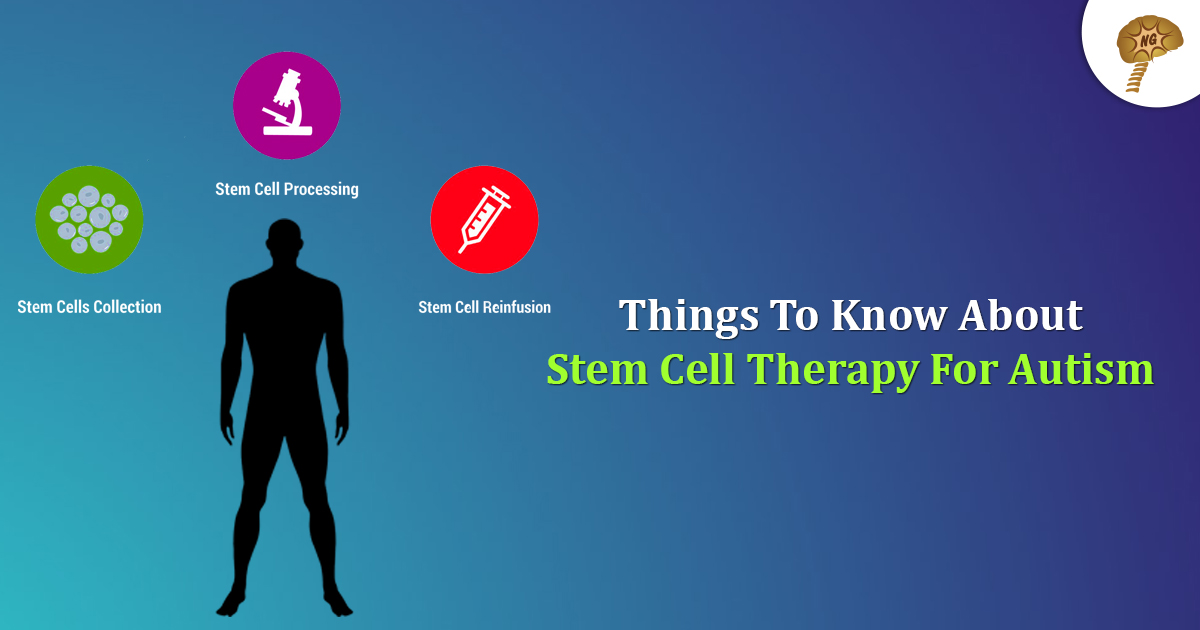
Autism is a neurodevelopmental disorder varying in syndromes depending on the nature and severity of their clinical condition. People with autism display a highly diverse collection of disorders with differences symptoms, intellectual level, along with a wide range of physical or functional disability. This variation arises due to genetic and environmental effects that often activate in the womb.
Syndromes of autism arise because of the disorders of brain development and synapse connections. People with autism exhibit symptoms such as anxiety, sleep disorders, irritability, aggression, gastrointestinal issues, anxiety, and depression. Treatment for the disorder is composed of cell therapy for autism in India along with conventional therapies which include ABA therapy, speech therapy, and occupational therapy.
NeuroGen Brain and Spine Institute offer cell therapy for autism in India to bring about cognitive improvements in patients with neurodevelopmental disorders like autism. They have treated over 1839 patients with autism who now enjoy an improved lifestyle after cell treatment. The treatment consists of the intrathecal infusions of bone marrow-derived mesenchymal stem cells to treat the damaged brain cells and to mend the snapped synapse connections.
Some of the facts about cell therapy for autism that one need to know are from the trusted neurosurgeons before deciding what is best for the patient are:
1. What Are Stem Cells?
Stem cells are cells found in many parts of the body including the bone marrow. These cells can morph into various types of specialized cells such as the tissue cells. They serve as an ‘internal repair’ solution for treating the damaged cells and tissue.
2. What is Cell Therapy?
Cell therapy uses the patient’s own stem cells derived from his/her hip bone. Cell therapy is a safe and quick alternative to complicated surgeries.
How Is Cell Therapy For Autism In India Performed?
Through a simple and almost painless procedure, bone marrow is aspirated from the patient’s hip bone using an aspiration needle. The derived marrow then undergoes a centrifugation process to separate the healthy new stem cells from the unwanted tissue. The new stem cells are then re-injected, intrathecally, into the spinal site from where they migrate to the damaged areas of the brain. Once infused, they amplify their repair efforts to accelerate healing, reduce inflammation, and prevent further loss of function.
3. When Can A Patient Begin To Feel Better?
After the infusion of stem cells, some patients may sense no improvement for a couple of weeks, after which continued improvement is seen in them.
According to neurosurgeons, cell therapy is safe and effective treatment for autism. As the stem cells are extracted from the body of the patient (autologous), hence, there is no risk of rejection or the fear of the patient getting infected.








